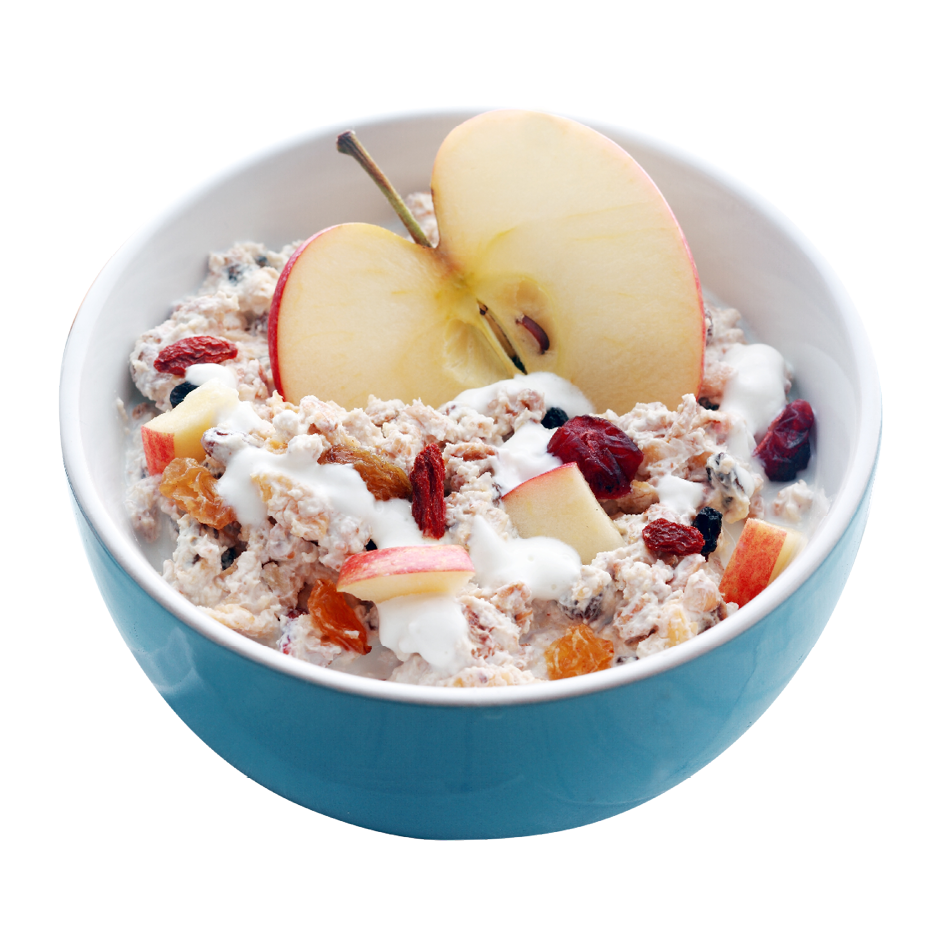Top performance – healthy diet
Our health and performance is built on what we eat. If you’re eating a varied diet, with plenty of fresh fruit and vegetables, you’re taking in all the key nutrients.
Carbohydrates, proteins and fats cover our daily energy requirements. Particularly valuable carbohydrates are found in wholemeal products. These ensure our blood sugar levels rise only gradually, make us feel full for longer and help to prevent obesity and diabetes. Fats are also more useful than their name implies. They bind the vitamins A, D, E and K and especially vegetable fats like olive oil or rape seed oil are rich in healthy fatty acids. Bones and muscles need a lot of protein. Pulses are rich sources of vegetable protein, while dairy and meat products provide animal protein.
A balanced diet can draw on the full range of foodstuffs on offer. The amount needed should depend on daily energy requirements. If we’re not moving about much, then the body will need less energy.

Seven elements of a healthy diet
The German Nutrition Society lists seven different food groups. Some of these should be on the menu every day, others only occasionally.
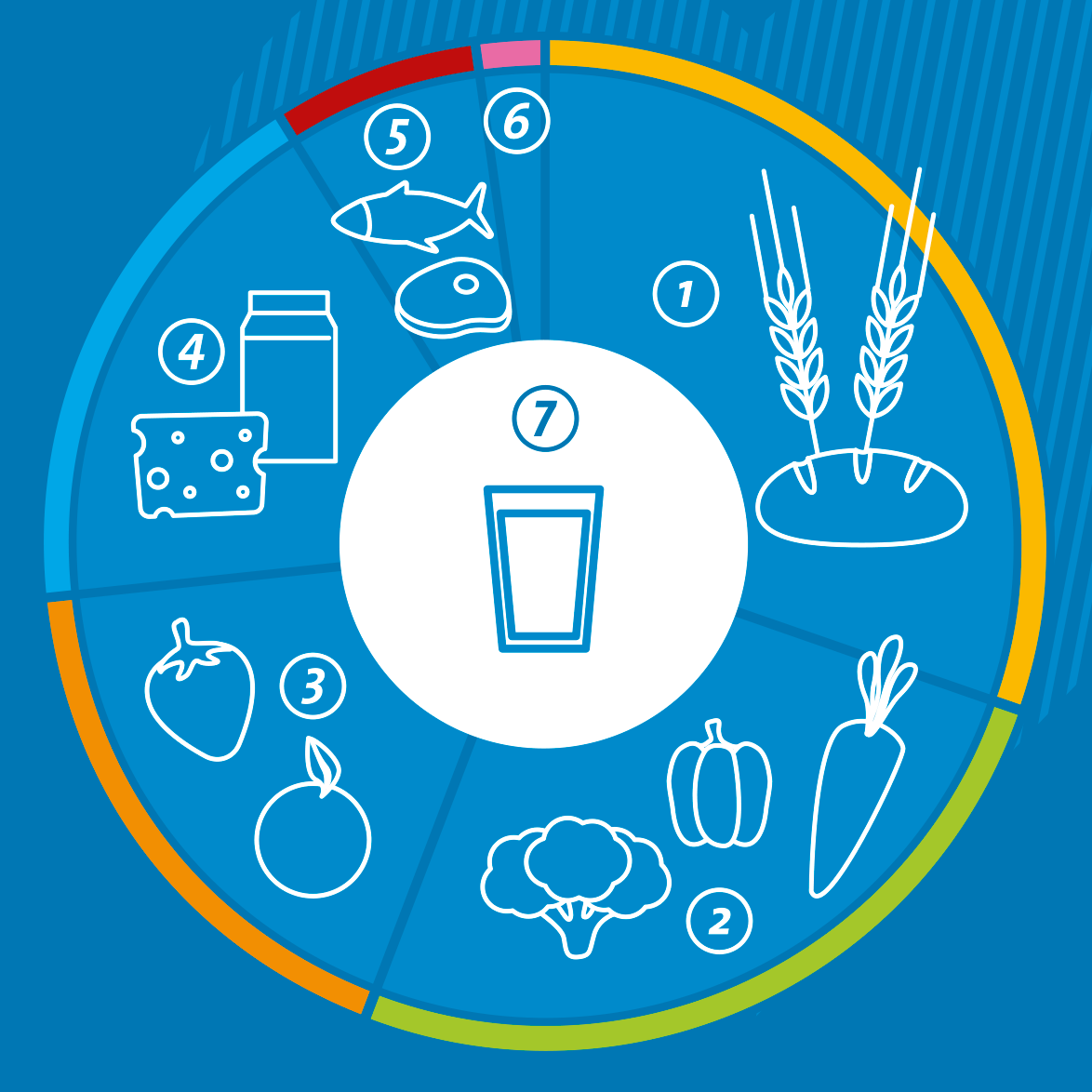
Tip: Tackling thirst
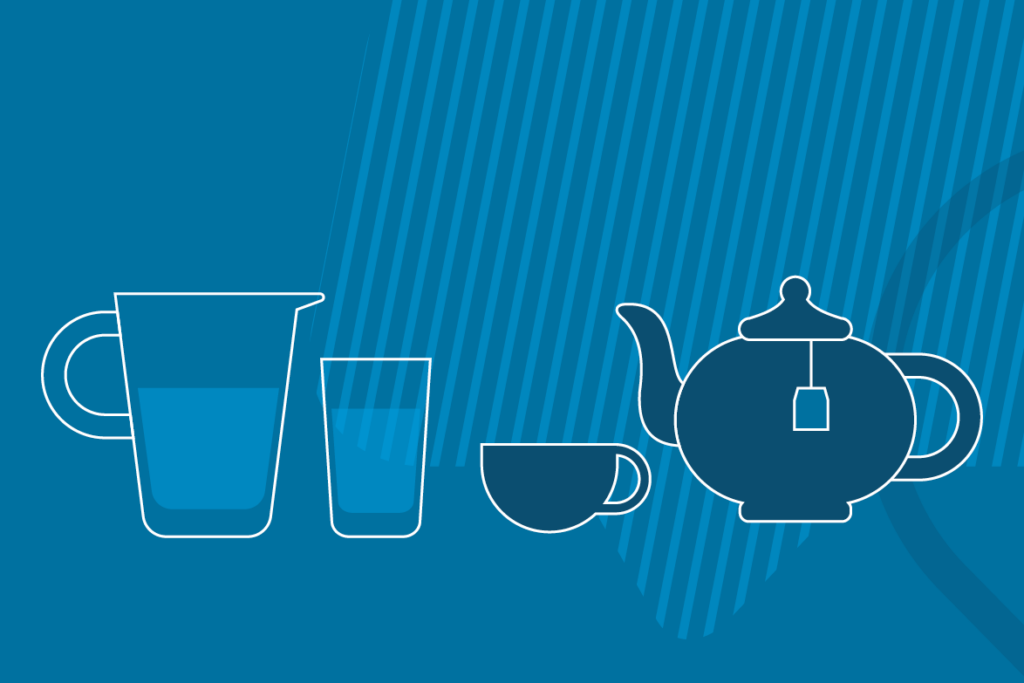
An average adult’s body is made up of over 50 percent water. For a man weighing 70 kilos, that’s about 40 litres. Every day you lose around two to three litres, either by perspiring, breathing or via digestion.
To ensure the right fluid balance, you need to drink one and a half litres of liquid daily, spread out over the day – ideally in the form of water, diluted juice (one fourth fruit juice), or unsweetened herbal or fruit teas. The body gets the remaining fluid from food. Above all, fruit, vegetables and soups are ideal candidates for getting fluids into your body.
You shouldn’t rely on sugar-containing lemonades to quench your thirst. They increase the risk of obesity, diabetes and tooth decay and increase the desire for more.
Tips on keeping fats low
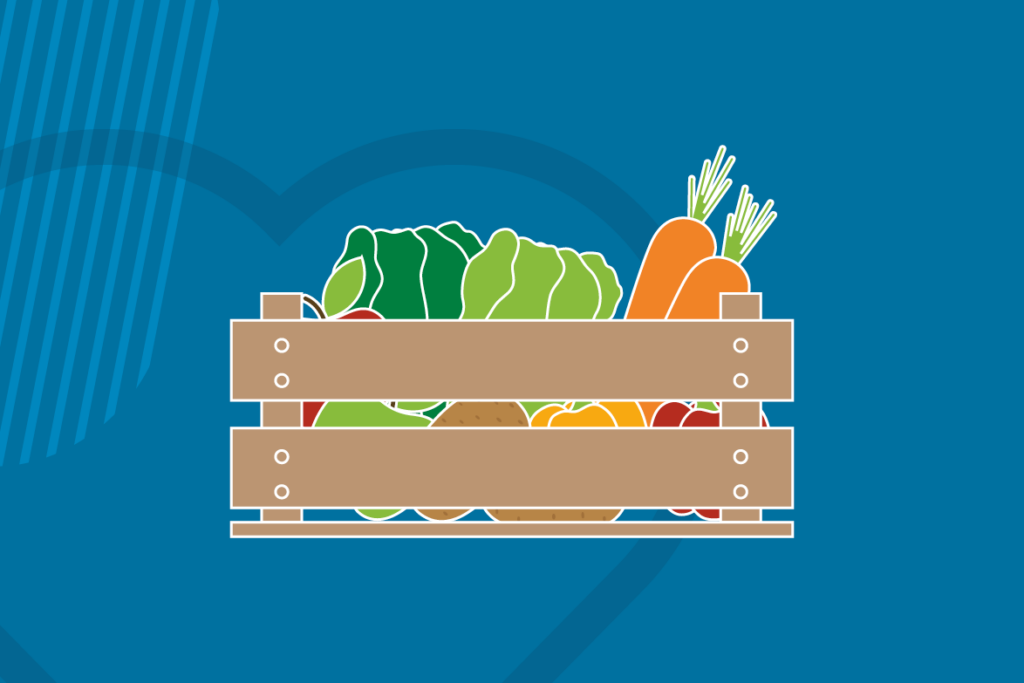
Around 40 percent of Germans already check fat content when they buy processed foodstuffs or finished products. If you want to reduce your intake of fat, you shouldn’t just leave it at that. Prepare natural, untreated produce like fresh, locally sourced fruit and vegetables, wholemeal and reduced-fat dairy products. That way you’re taking in less sugar – which is more abundant in ready-made foods.
Often it’s not just finished products that contain a lot of fat. It’s also concealed in sausage meat, cheese and baked foods. If you keep your eyes peeled while you’re shopping, however, you can find reduced-fat alternatives. It can be trickier when you’re making salad dressings. Choose vegetable oils like rape seed, sunflower or olive oil then.
Tip: Sweet temptation
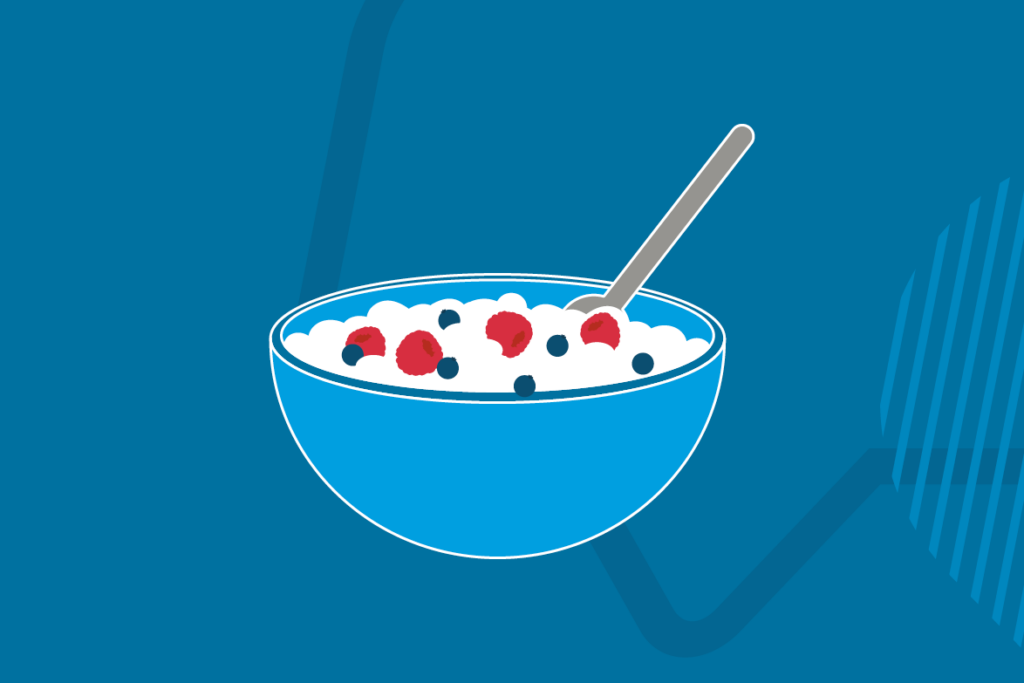
Craving something sweet? Natural yoghurt or quark with fresh fruit can be saved in a jar for the morning – no extra sugar but full of calcium and vitamins. These latter are essential for efficient metabolism. And the body requires calcium for building up robust bones and teeth. A balanced calcium intake also contributes to thinning the blood and protects against allergies.
Add a few oat flakes and you’ve got yourself a mini-meal. These contain particularly large amounts of starchy carbohydrate, which is also found in potatoes or rice. This makes you feel full for longer and delivers crucial energy to the body.
Tip: Power break
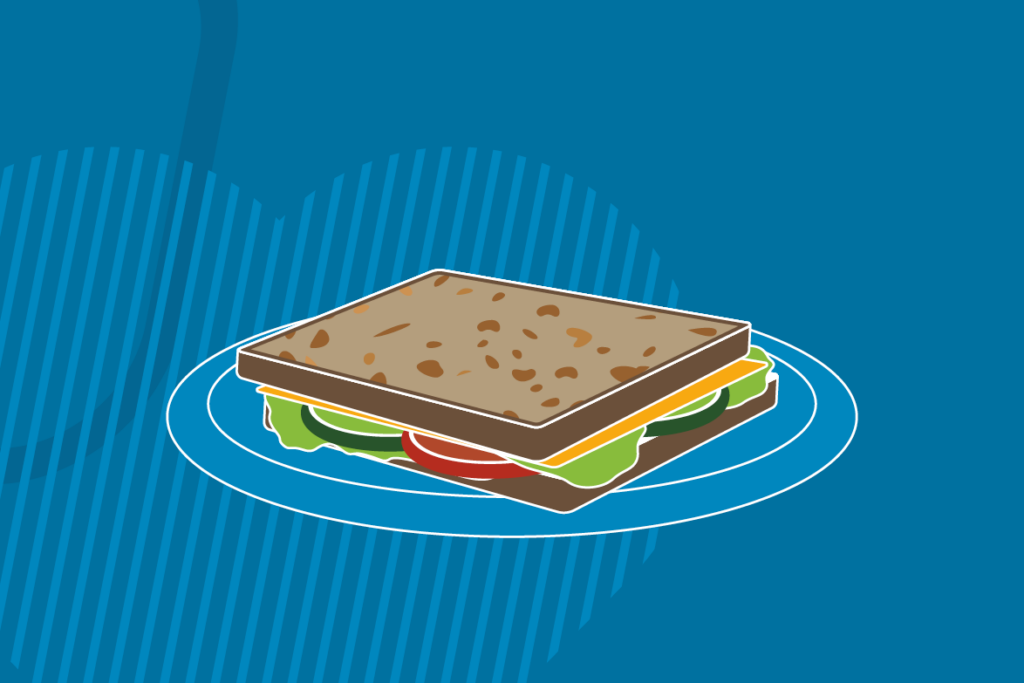
Something more substantial for the day? Two slices of whole-grain bread with cream cheese, salad or paprika and lean turkey breast or sliced cheese are a genuine power food. They fill you up nicely and also provide fibre and mineral nutrients, protein and vitamins.
Food like this can be a part of a balanced diet that normally provides us with all the essential nutrients. Supplementary foodstuffs are then only needed in special cases.


